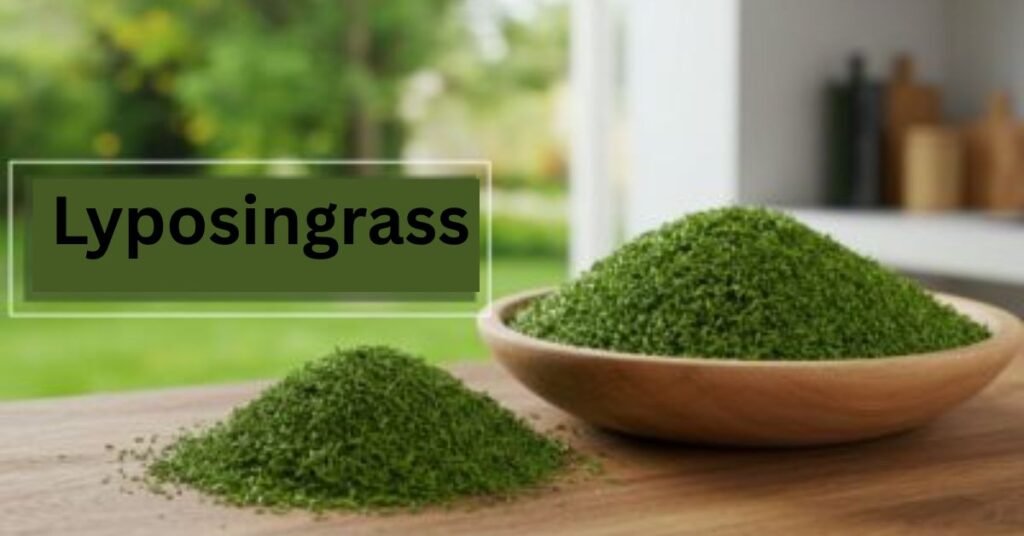Quick Answer / Key Takeaway
Lyposingrass is an emerging botanical supplement claiming to support metabolism, detoxification, and weight management through a proprietary blend of plant-derived compounds. Early studies and anecdotal reports hint at mild benefits, but robust clinical evidence is lacking. Use caution, research effectively, and consider alternatives before diving in.
Introduction
In recent months, wellness magazines and social media influencers have begun touting lyposingrass as a breakthrough supplement for boosting metabolism, easing digestive issues, and even supporting detoxification protocols. The term may sound exotic, but behind it lies a carefully packaged promise: that a specific grass-derived ingredient can safely assist in weight and health goals. In this article, we’ll unpack the origins, the science, and the risks of lyposingrass — and help you decide whether it’s a fad or the next big thing.
Background / How Lyposingrass Works
The story of lyposingrass begins with its botanical roots. According to promotional material from supplement makers, lyposingrass is derived from a hybrid strain of Lypo (a coined prefix suggesting “lipid / lipolysis”) and grass (the plant base). Extracts are purported to concentrate key compounds like chlorophyll derivatives, polyphenols, and novel flavonoids said to stimulate fat breakdown and improve cellular function.
Manufacturers claim that these bioactive molecules act in multiple ways:
- Mitochondrial stimulation: By up-regulating genes involved in energy metabolism, lyposingrass is said to help cells burn more fuel.
- Detox pathways: The supplement is often claimed to enhance liver-phase detox enzymes, clearing metabolic byproducts.
- Appetite modulation: Some anecdotal users report that lyposingrass reduces cravings or slightly blunts hunger signals.
However, independent research is minimal. A few early-stage in vitro and animal studies (often funded by companies marketing the substance) show modest changes in fat-metabolic markers, but no peer-reviewed, large-scale human trials have confirmed these effects. The mechanism remains speculative, and long-term impact is unknown.
ALSO READ: Evonygalore: The Hidden Engine Behind Evony Mastery
Why People Search for Lyposingrass
In an era of wellness innovation and quick-fix promises, lyposingrass appeals to several desires:
- Weight management hope: Many people battling stubborn weight plateaus or slow metabolism are always looking for new, “natural” aids that might provide a boost.
- Detox culture: The modern wellness industry frequently markets detox protocols, and lyposingrass is often sold within that narrative.
- Plant-based trend: Consumers are drawn to supplements that sound botanical, clean-label, or “nature-derived” — and lyposingrass fits that image.
- Social media momentum: Influencers and early adopters often showcase before/after stories tied to lyposingrass, fueling curiosity and searches.
In short, consumer searches for lyposingrass often start from a combination of hope, marketing messages, and a sense that there might be a next-level supplement that conventional diets and exercise miss.
Is Lyposingrass Safe / Legal / Worth It?
Safety
Because human data are scarce, assessing the safety of lyposingrass is challenging. Known issues:
- Side effects: Some users report mild gastrointestinal discomfort, nausea, or headaches in the first week. Because detox pathways are implicated, there’s a theoretical risk of liver strain.
- Allergen potential: As with any botanical product, there’s a chance of allergic responses or interactions with medications.
- Quality control: Without regulatory oversight like for drugs, supplement purity and dosage consistency may vary between batches.
Legality
In most countries, lyposingrass falls under the dietary supplement or herbal product category rather than as a controlled substance. That means it’s usually legal to sell, buy, and import (depending on local regulations). But in some jurisdictions, if a product claims to treat disease, it might be subject to stricter regulations.
Worth It?
Given the current evidence, lyposingrass is not a guaranteed miracle. At best, it may provide a small adjunct benefit for motivated users who already maintain diet and exercise consistency. At worst, the results may be negligible or offset by side effects or cost. Until larger, well-designed clinical trials are published, it remains speculative. Use caution, and consult medical professionals if you have existing health conditions.
Major Updates or News About Lyposingrass
In 2024 and 2025, lyposingrass began entering the attention of regulators, journalists, and the scientific community. Some notable developments:
- Clinical trial registration: A few startups announced Phase I/II trial registrations to test lyposingrass in overweight adults. Results are expected by late 2025.
- Regulatory scrutiny: In certain markets, consumer watchdogs have issued warnings to supplement companies advertising lyposingrass as a guaranteed weight-loss agent, citing lack of evidence.
- Media investigations: A handful of health journalists have dug into the sourcing chain of lyposingrass, uncovering opacity in manufacturing and conflicting claims about its botanical origin.
- Patent filings: Corporations have filed patent applications reflecting proprietary extraction methods and formulations for lyposingrass derivatives — signaling they view it as a commercial opportunity.
These developments suggest the lyposingrass story is still evolving. We may soon see more rigorous science or regulatory pushback.
The Bigger Impact of Lyposingrass in 2025
By mid-2025, lyposingrass may represent more than just a supplement — it could reflect broader shifts in wellness and consumer behavior:
- Reinforcement of botanical premiumization: As consumers seek “natural” alternatives to synthetic weight-loss compounds, lyposingrass fits the mold of a market willing to pay more for plant-based mystique.
- Regulatory recalibration: If authorities begin enforcing stricter labeling, claims, or safety testing, the supplement industry might face renewed compliance pressures.
- Science-driven demand: Should human trials validate even modest benefits, lyposingrass could catalyze a new niche in metabolic support products, triggering imitations and derivative formulations.
- Cultural narratives: The story of “grass turned metabolism booster” carries strong marketing appeal — whether or not it lives up to claims, it illustrates how symbolic language shapes health trends.
Thus by 2025, lyposingrass may be both a marketing case study and a litmus test for how speculative botanicals fare under scientific and regulatory pressure.
Best Alternatives to Lyposingrass
For readers seeking more established or safer options, here are alternatives with stronger evidence:
- Green tea extract / EGCG: Well researched for modest metabolic and antioxidant benefits.
- Forskolin (Coleus forskohlii): Some limited studies support fat mobilization effects.
- Conjugated linoleic acid (CLA): Mixed results, but widely studied.
- Caffeine + green coffee bean: Traditional stimulants with known effects.
- Lifestyle first: Diet, resistance training, sleep quality, and stress management remain the pillars with the largest effect sizes — no supplement replaces them.
Each alternative carries its own safety profile, so approach supplementation carefully, ideally under medical supervision.
Final Take
Lyposingrass is a compelling narrative — a grass-derived formula promising metabolic and detox benefits. But the science is still immature, the safety profile uncertain, and the hype intensive. If you’re curious, treat lyposingrass as an experimental supplement, not a miracle. In my view, it holds potential, but you should wait for more robust evidence before fully embracing it.
FAQs
Q: What is lyposingrass used for?
A: It’s marketed as a supplement to aid metabolism, detoxification, appetite control, and weight management.
Q: How soon do people see effects from lyposingrass?
A: Anecdotal reports claim mild changes in 1–2 weeks, but no controlled trial has confirmed timing or magnitude of effect.
Q: Are there studies proving lyposingrass works?
A: Not yet — current data are limited to early lab and small-scale, non-peer-reviewed trials.
Q: Can I take lyposingrass alongside medication?
A: You should consult your physician. Botanical supplements may interact with common drugs (e.g. liver metabolism modulators).
Q: Does lyposingrass have side effects?
A: Some users report nausea, gastrointestinal upset, or headaches, particularly during early adaptation.
Q: Is lyposingrass legal everywhere?
A: In most places yes, as a dietary supplement. But if marketed with disease claims, it may fall under stricter regulation in some jurisdictions.







